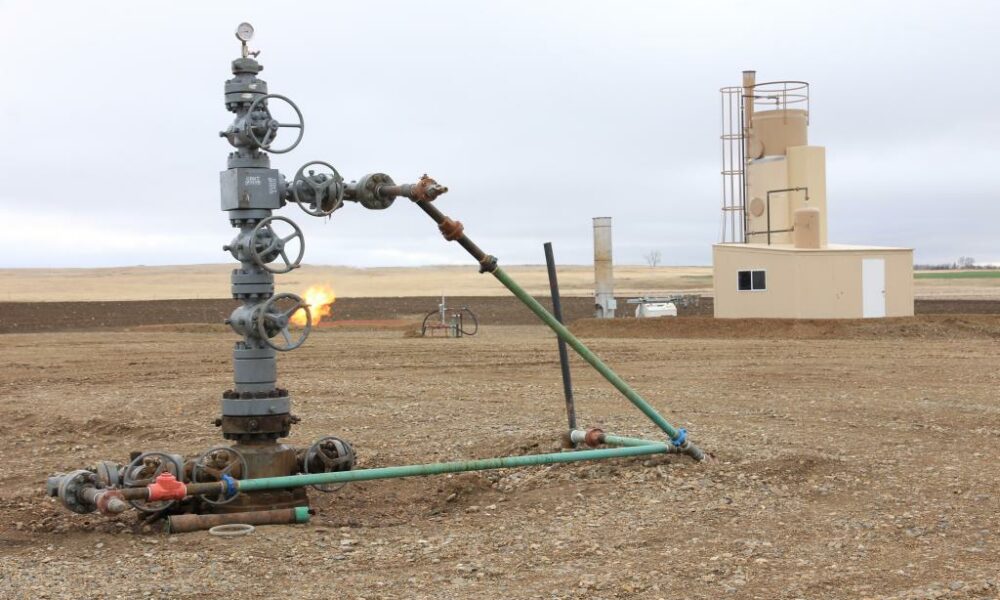“An Introduction to Oil Well Investing: Opportunities and Considerations”

Oil well investing has been a lucrative venture for many investors, offering high potential returns and portfolio diversification. However, like any investment, it comes with its own set of complexities and risks. This article provides an introduction to oil well investing, exploring the benefits, risks, and essential steps to get started in this dynamic field.
Why Consider Oil Well Investing?
- High Return Potential: One of the primary attractions of oil well investing is the potential for high returns. Successful oil wells can produce substantial amounts of oil, generating significant revenue over many years. This long-term income potential makes oil well investments particularly appealing.
- Portfolio Diversification: Adding oil wells to an investment portfolio can provide valuable diversification. Oil investments often have a low correlation with traditional financial markets such as stocks and bonds, which can help hedge against economic volatility and downturns.
- Tangible Assets: Investing in oil wells involves tangible, productive assets. For investors who prefer physical investments over financial instruments, oil wells offer the security of owning something concrete that generates real returns.
- Tax Advantages: There are notable tax benefits associated with oil well investments. Investors can often deduct intangible drilling costs (IDCs) and tangible drilling costs (TDCs) from their taxable income, reducing the overall tax burden and enhancing the investment’s attractiveness.
Understanding the Risks
Despite the potential rewards, it is crucial to understand the risks associated with oil well investing:
- High Initial Costs: Drilling and developing an oil well requires substantial capital investment. These high initial costs can be a significant barrier for many investors and must be carefully considered before committing to an investment.
- Market Volatility: Oil prices are subject to significant fluctuations due to geopolitical events, changes in supply and demand, and global economic conditions. This volatility can directly impact the profitability of oil well investments.
- Regulatory and Environmental Concerns: The oil industry is heavily regulated, and compliance with environmental laws can be both costly and complex. Changes in regulations can also affect the feasibility and profitability of oil well projects.
- Operational Risks: Drilling for oil is inherently risky. There is no guarantee that a well will produce commercially viable quantities of oil, and operational challenges can lead to financial losses. Understanding these risks and preparing for them is essential.
Steps to Get Started
For those interested in exploring oil well investments, here are some essential steps to consider:
- Educate Yourself: Before diving into oil well investing, take the time to understand the industry, the drilling process, and market dynamics. Knowledge is crucial for making informed investment decisions.
- Partner with Experienced Operators: Investing in oil wells often involves partnering with experienced operators and drilling companies. These professionals bring valuable expertise and resources, helping to mitigate risks and increase the chances of success.
- Evaluate Investment Opportunities: Conduct thorough due diligence on potential investment opportunities. Assess the geological characteristics of the site, historical production data, and the reputation of the operators. Detailed research will help you identify high-quality investments.
- Choose the Right Investment Structure: There are various ways to invest in oil wells, including direct participation programs (DPPs), joint ventures, and investments in publicly traded energy companies. Each structure has its own risk and return profile, so choose the one that aligns with your investment goals and risk tolerance.
- Monitor and Manage Investments: Once you have invested, actively monitor the performance of your oil wells. Stay informed about market conditions, regulatory changes, and technological advancements that could impact your investment. Regular reviews will help you make timely decisions to optimize returns.
Introduction to Oil Well Investing
For those new to the field, getting an Introduction to Oil Well Investing can be incredibly beneficial. Resources and courses tailored to beginners can provide foundational knowledge and insights, helping you understand the intricacies of oil well investments and how to navigate the market effectively.
Conclusion
Investing in oil wells offers a unique opportunity for high returns and portfolio diversification. However, it also comes with significant risks that require careful consideration and management. By educating yourself, partnering with experienced operators, and conducting thorough due diligence, you can make informed decisions and maximize the potential of your investment.
As the global demand for energy continues to rise, the oil sector remains a viable and attractive investment option. With the right approach and a solid understanding of the industry, investing in oil wells can be a profitable addition to your investment portfolio. Whether you are a seasoned investor or new to the field, there are opportunities waiting for those willing to explore this dynamic sector.
Read More From Techbullion And Businesnewswire.com





